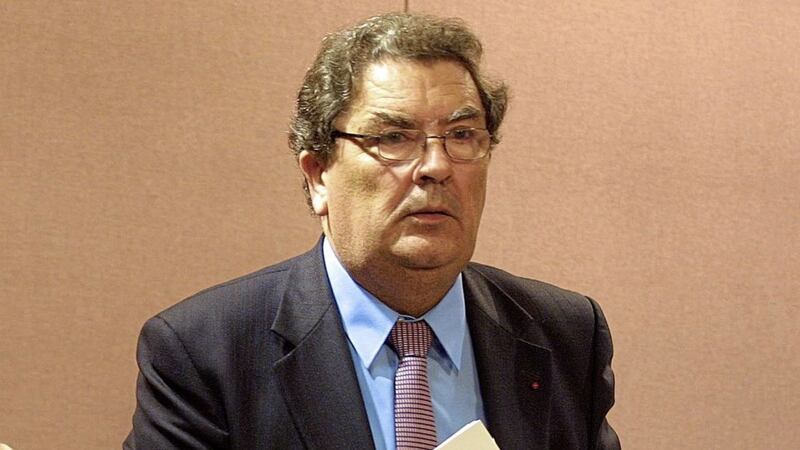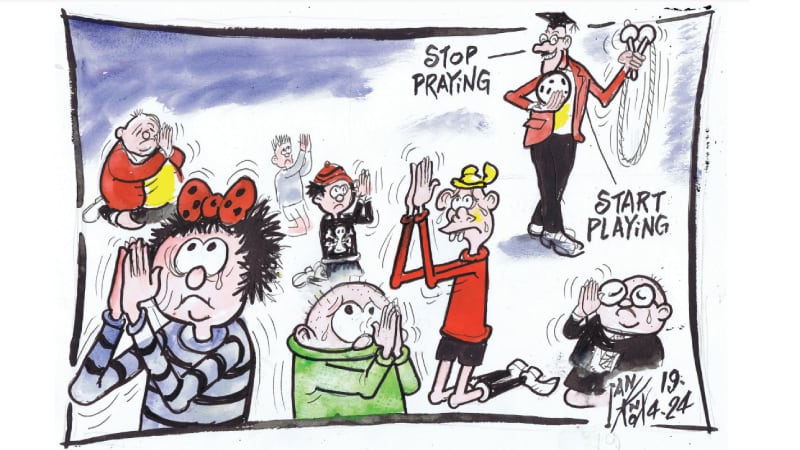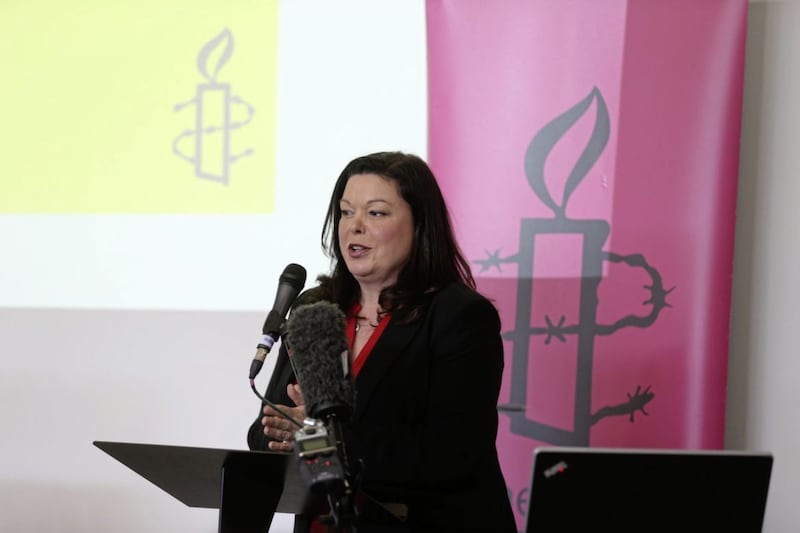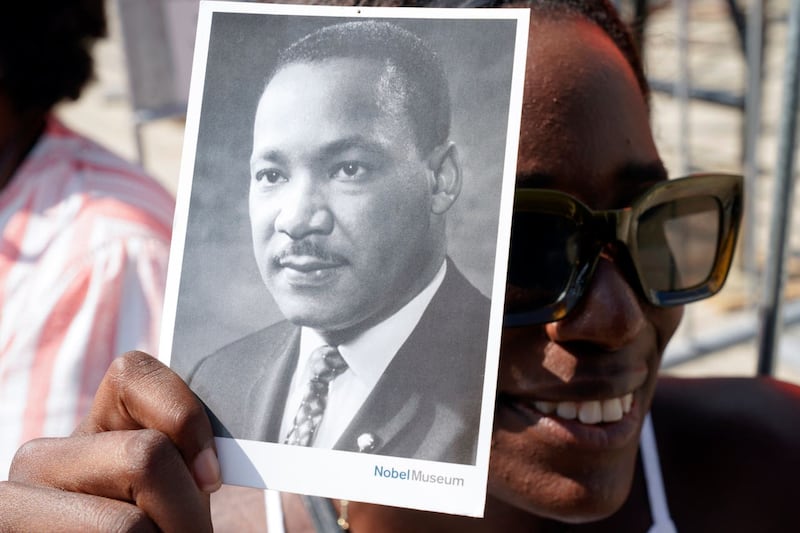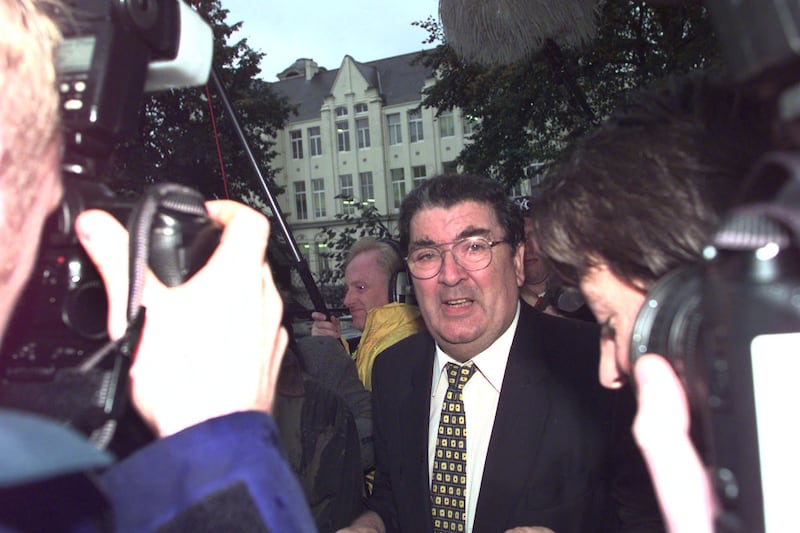FOR MORE than 30 years John Hume towered over Irish politics. Unwavering in his opposition to violence and relentless in his pursuit of peace, his vision and dedication gave constant momentum to the long and arduous process that would lead to the Good Friday Agreement. Dialogue was his means, reconciliation his goal.
His legacy lives on in the power-sharing institutions and in the absence of killing on the scale that marked the years when he was politically active. Arguably, without his contribution to Irish politics and selfless willingness to take risks, it’s unlikely the settlement that brought peace would have been achieved when it was.
A proud Derryman, Irishman and European, he came to prominence as a wave of discontent among northern nationalists was harnessed in the civil rights movement. Leading from the front, he was fearless in confronting discrimination and aggression in all its forms.
In a society that was spiralling out of control in the early 1970s, his measured and dignified approach was in stark contrast to the chaos around him. He provided hope amidst deep pessimism. While unapologetically nationalist, his language was always inclusive. He was equally disparaging of the IRA’s armed campaign and of British state violence.
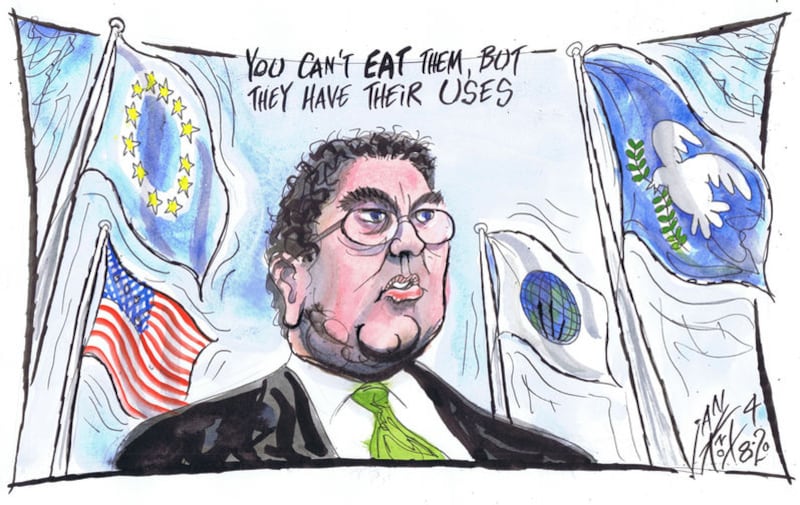
From the SDLP’s earliest days, John Hume was central in formulating and promoting a strategy that sought to convince unionists that the only way to bring stability to an inherently unstable situation was to share power with nationalists. Even after Sunningdale collapsed, he continued to argue the merits of power-sharing, while acknowledging the principle of consent, a template that prevails today.
Succeeding Gerry Fitt as leader in 1979, along with his deputy Séamus Mallon, he steered the party on a more overtly nationalist trajectory while building support across Irish America and in Europe, where his influence as an MEP would prove hugely significant.
It was his fervent opposition to the IRA’s campaign that gave him the authority to talk to the republican movement and to forge a route out of what seemed like an intractable conflict. His engagement with Gerry Adams from the late 1980s onwards was undertaken at great personal and political risk but his ability to see a greater, long term prize was what marked out John Hume as special. The breadth and diversity of those who yesterday came forward to pay tribute to the former SDLP leader is a testimony to his integrity.
Former MP for West Belfast, Dr Joe Hendron telling the story of the New Ireland Forum in 1984.
— Social Democratic and Labour Party (@SDLPlive) August 4, 2020
The Anglo Irish Agreement and Good Friday Agreement followed. All roads led back to John Hume, Joe’s friend and a visionary. pic.twitter.com/zoznHhr0uP
Unionism was reluctant to engage in the peace process but thankfully the SDLP leader’s determination was matched to a degree by David Trimble, an unlikely leader who nonetheless shared a belief in the partnership approach. Both men’s persistence cost their parties electorally but history has recognised their sacrifices.
If there was a failing in John Hume’s leadership, it was in his and his party’s failure to plan for succession. In his defence, he and Séamus Mallon’s departure from frontline politics came quite abruptly and within a relatively short space of time. Nevertheless, their absence left a vacuum that took years to redress.
But of course, there was never any plan for someone else to assume John Hume’s role. He was quite simply irreplaceable.
Read more: John Hume loved Derry and it loved him
